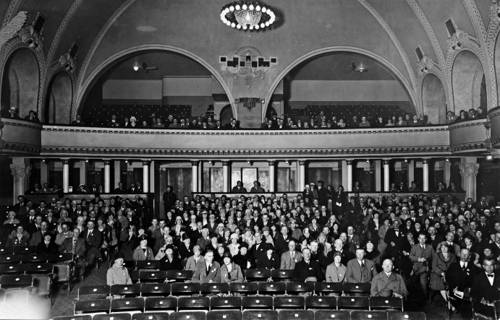
FAQ About The Influence of Film Criticism on Audience Perception

What is film criticism?
Film criticism is the analysis and evaluation of films, often done by professional critics or scholars who offer insights into a film's artistic value, cultural context, technical execution, and narrative elements. It is usually published in newspapers, magazines, online platforms, or through video formats and aims to inform and shape public opinion about films.

How does film criticism influence audience perception of a movie?
Film criticism can significantly influence audience perception by providing a deeper understanding of the film's themes, performance quality, direction, and overall impact. Positive reviews can attract audiences by highlighting a movie’s strengths, while negative reviews might deter viewers by pointing out flaws. Critics, regarded as experts, can guide potential viewers in framing their expectations and interpretations.

Can negative film criticism harm a film’s box office success?
Yes, negative film criticism can adversely affect a film's box office success. If highly regarded critics provide poor reviews, it may deter audiences from watching the film, leading to reduced ticket sales. However, some films may still perform well commercially if they have a strong fan base or appeal despite critical reviews.

Do film critics and audiences always agree?
Film critics and general audiences often have differing opinions about a film. Critics may focus more on artistic merit, technical execution, and narrative depth, while audiences might prioritize entertainment value, emotional engagement, or personal preferences. As a result, a film might receive critical acclaim yet be less popular with general audiences, or vice versa.

How does film criticism contribute to cultural debates?
Film criticism contributes to cultural debates by highlighting how films reflect, challenge, or reinforce societal norms, values, and issues. Critics often contextualize movies within contemporary political, social, or cultural frameworks, sparking discussions about relevant topics such as representation, gender roles, or ethical dilemmas depicted in films. This can encourage audiences to engage in broader societal dialogues.

What role do online reviews play in shaping audience opinions?
Online reviews, including those on platforms like Rotten Tomatoes, IMDb, and Metacritic, play a crucial role in shaping audience opinions by providing a wide array of viewpoints. They offer aggregated scores from both critics and the general audience, giving potential viewers an overall sense of consensus or disparity, thereby influencing decisions on whether to watch a film.

Are there films that succeeded despite poor critical reviews?
Yes, there are several films known as "box office hits" that succeeded financially despite receiving poor critical reviews. These films often attract audiences due to factors like star power, strong marketing strategies, or tapping into prevailing audience tastes or trends, demonstrating that box office success doesn't always align with critical reception.

How has the internet changed film criticism?
The internet has democratized film criticism by allowing a broader range of voices to be heard through blogs, social media, and video platforms like YouTube. This has expanded the scope, style, and diversity of film criticism, leading to an increased influence on audiences due to the accessibility and instant reach of online reviews and discussions.

What is the difference between a film critic and a film reviewer?
A film critic generally provides a more in-depth analysis and interpretation of a film, often placing it within a larger cultural or artistic context. A film reviewer typically offers a summary and opinion about a movie's entertainment value, often meant to guide immediate consumer decisions. Critics tend to have formal training in film studies, whereas reviewers might not.

Can film criticism affect future industry trends?
Film criticism can influence future industry trends by shaping which movies are celebrated, rewarded, or deemed culturally significant. Positive critical reception can bring attention to innovative storytelling techniques, emerging filmmakers, or underrepresented genres, encouraging producers to invest in similar projects and shaping industry priorities and trends.

Do filmmakers consider film criticism during production?
Many filmmakers regard film criticism as an important feedback source, influencing their creative decisions and choices in future projects. Some might anticipate potential criticisms and attempt to address them during production, while others focus primarily on their artistic vision and audience reception over critics’ views.

Why do some films have large differences between critic scores and audience scores?
Differences between critic scores and audience scores often result from varying evaluation criteria. Critics may emphasize artistic and technical aspects, whereas audiences might prioritize entertainment and emotional responses. Factors such as fan loyalty, marketing influence, and cultural trends can also contribute to these discrepancies.

Has film criticism ever caused a film to be reconsidered over time?
Yes, film criticism has led to the reconsideration of films over time. Some movies initially received poor reviews but were later praised as they gained cultural significance or were reassessed as ahead of their time. Conversely, some well-received films have faced critical scrutiny as cultural contexts evolved.

How do film festivals impact film criticism?
Film festivals are pivotal in shaping critical responses as they showcase films that might not receive mainstream attention otherwise. Festivals provide critics with early access to films, often setting the tone for subsequent reviews and influencing a film’s reception through buzz generated during these events.

What is the impact of celebrity film critics?
Celebrity film critics can significantly sway public opinion because they leverage their existing fame and influence. Their reviews may reach a broader audience and can impact popular perceptions, contributing positively or negatively towards a film’s reception depending upon their conclusions and endorsements.

Why is film criticism important for cinema as an art form?
Film criticism is essential for the appreciation and evolution of cinema as an art form. It encourages a deeper understanding of films beyond surface-level enjoyment, fostering discussions about artistic techniques, narrative structures, and thematic depth. Criticism can elevate filmmaking standards by highlighting exemplary work and questioning less innovative ones.

How does film criticism affect streaming platforms like Netflix or Amazon Prime?
Film criticism affects streaming platforms by influencing viewer choices and preferences, which can impact a film’s popularity and longevity on these services. Successful critical reception can lead to increased viewership and subscription rates, encouraging platforms to produce or acquire films that align with critically praised content.

Can film criticism be biased?
Like any form of media, film criticism can be subjective and may reflect personal biases of critics. These biases could be based on a critic’s cultural background, personal preferences, or past experiences. However, most professional critics strive for objectivity and provide informed, balanced critiques based on a film's merits rather than personal bias.

What are common misconceptions about film criticism?
Common misconceptions about film criticism include the idea that critics are out of touch with general audiences or only focus on negative aspects. In reality, many critics appreciate a wide range of films and aim to provide thoughtful insights rather than merely criticize. It’s also false to assume that all critics will have the same opinions, as diversity in critical thought is common and valuable.

Has film criticism changed over decades?
Yes, film criticism has evolved over the decades alongside changes in media, technology, and cultural perceptions. The rise of digital platforms and social media has expanded the scope and style of film criticism, enabling more interactive and diverse perspectives. Additionally, shifts in cultural attitudes and artistic trends have influenced the topics and themes critics prioritize in their analyses.
